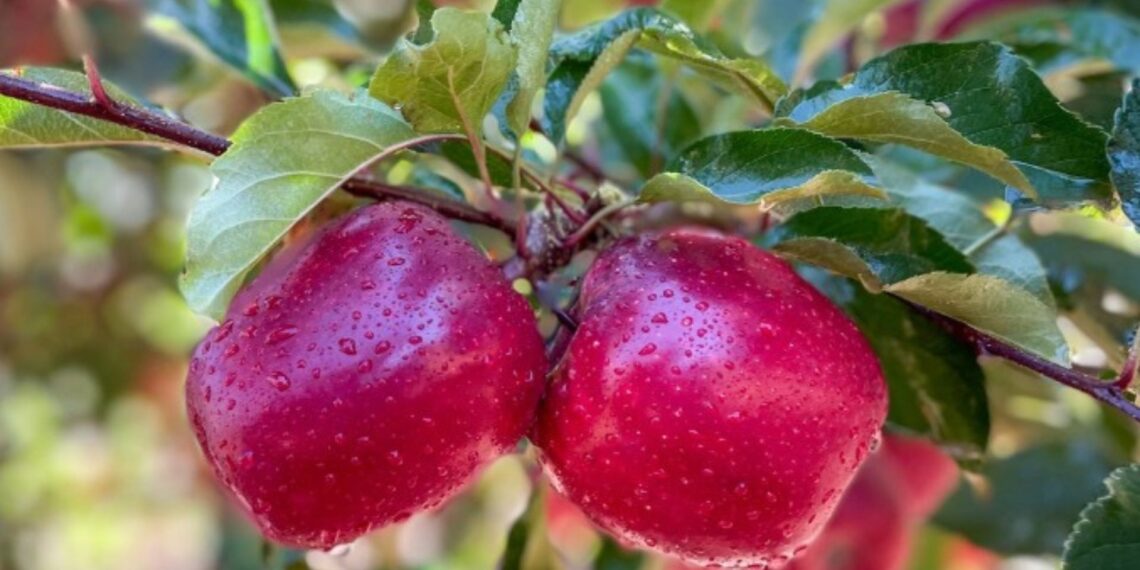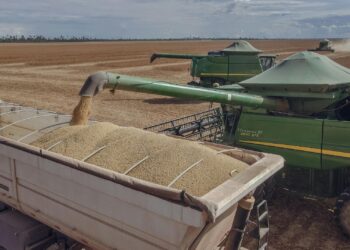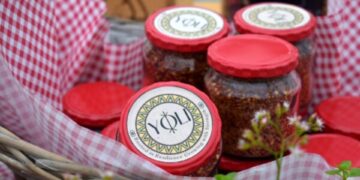After years of strategic investment, collaborative learning, and precision orchard management, Tru-Cape growers have maximised the potential of Pink Lady® apples, achieving record-breaking packouts.
According to a statement by Tru-Cape, both packhouses made significant strides this season. At Ceres Fruit Growers, Pink Lady packouts reached nearly 75% the highest on record for the business.
“At the same time, Two-a-Day saw an impressive 8 percentage point increase in Pink Lady packouts compared to last year. This success is the result of a coordinated, long-term strategy by Tru-Cape growers to enhance colour development, fruit quality, and yield consistency.
“A key turning point came with the realisation that increasing the proportion of Pink Lady (versus Cripps Pink) apples packed could significantly boost profitability,” Tru-Cape stated.
Embracing new techniques and technology
Calla du Toit, Tru-Cape’s procurement manager, said they have made it their goal to get closer to 80% Pink Lady per hectare, and they have come a long way. “These results show that the strategy is working,” Du Toit said.
Growers like Kootjie Viljoen from the farm Oewerzicht near Greyton in the Western Cape, have led the charge by adopting a holistic set of techniques aimed at improving light penetration and enhancing colour, especially in warmer regions where this can be a challenge.
“We do summer pruning, break leaves around the fruit, and use reflective mulch under the trees. The mulch, which we developed in collaboration with Polywrap, reflects sunlight back into the canopy, giving the fruit more light from all angles.
“This results in a higher percentage of well-coloured apples. These efforts have increased our Pink Lady yield by around 20%,” Viljoen said.
In cooler regions like the Witzenberg Valley, producers such as Du Toit use automated overhead irrigation to manipulate the diurnal temperature during the ripening phase, further enhancing colour without compromising fruit quality.
“When the temperature drops below a certain threshold, irrigation kicks in automatically, similar to frost protection, but triggered at a higher temperature. This lowers the orchard’s ambient temperature further, increasing the difference between day and night temperatures, which improves colour development,” Du Toit explained.
Related stories
- Landmark season as Flash Gala apples break records
- SA’s Flash Gala apples take a bite out of Indian market
- Green apples: A zesty zing for your health and backyard
- SA dairy industry tested by farmer losses and market challenges
Tru-Cape’s success is also highlighted by a generational shift among its growers, many of whom are embracing technology and information sharing like never before.
“The younger generation is deeply focused on innovation. But most importantly, they’re sharing knowledge and continuously pushing one another to improve,” he added.
As a result of these improvements in quality and consistency, Tru-Cape growers are seeing increasing demand in export markets. Feedback from international retailers has been overwhelmingly positive. Tru-Cape’s geographic proximity to the UK and European markets also allows for faster, more flexible delivery, with added value services such as flow wrapping and date coding.
Global demand rises
“Demand for our Pink Lady apples in Europe is up by 30% year-on-year. The South African Pink Lady industry is also making strong gains in Russia, the Middle East, and India.”
While the momentum is strong, Tru-Cape remains committed to responsible, value-driven growth. The varieties that can be marketed under the Pink Lady trademark are free cultivars in South Africa; any grower may plant them, but Tru-Cape places clear emphasis on quality over quantity.
“We believe in managing growth carefully to protect the value of the Pink Lady brand. It’s about staying competitive, consistent, and customer-focused,” Du Toit said.
READ NEXT: Cultivating heritage: Farmers reflect on roots and land


















